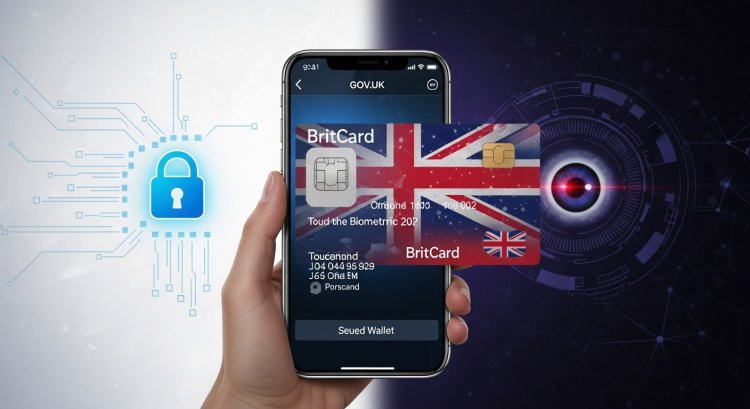UK Announces Mandatory Digital ID Plans-Everything You Need to Know About "BritCard"
The UK government has announced plans for a mandatory digital ID, the 'BritCard,' for all workers by 2029. Learn what this means for you, its features, and the privacy concerns

On September 26, 2025, UK Prime Minister Keir Starmer unveiled a landmark proposal: the introduction of mandatory digital ID cards for anyone who wants to work legally in Britain. The new system, dubbed "BritCard", aims to strengthen border control, tackle illegal immigration, and modernize the way citizens prove their identity.
While the government touts its anti-fraud and efficiency benefits, the plan has already sparked fierce debate among politicians, civil liberties groups, and technology experts.
What Is the UK Digital ID (BritCard)?
The proposed BritCard will be a digital identity system stored within a mobile app, similar to the NHS App. It will replace the National Insurance number as the main method for employers to verify a person's right to work.
For individuals without smartphones or internet access, the government has promised an alternative — possibly a physical card — to ensure inclusivity.
Key Features of the UK Digital ID Plan
- Mandatory for workers – All adults seeking legal employment in the UK must obtain a digital ID.
- Optional for non-workers – Citizens not seeking work (such as pensioners or students) won't be required to have one.
- Digital-first system – Stored on mobile devices through the GOV.UK Wallet App (currently in development).
- Physical backup – A card option may be available for those without smartphones.
- Employer requirement – Businesses will need to use the digital ID system to verify work eligibility.
- Personal data included – Photo, full name, date of birth, nationality/residency status, and potentially address.
- No carry rule – Citizens won't be required to present the ID for everyday activities, only for work verification.
Why Is the UK Introducing a Digital ID?
According to Prime Minister Keir Starmer, the digital ID scheme is designed to:
- Strengthen border security and reduce illegal immigration.
- Prevent unauthorized workers from finding jobs in the shadow economy.
- Reduce fraud across services such as welfare, tax, and driver's licenses.
- Provide faster, simpler ways for citizens to prove their identity for government and private services.
Concerns and Criticism
Despite its goals, the mandatory digital ID proposal faces strong opposition. Critics argue it could:
- Threaten privacy and civil liberties – Groups like Big Brother Watch warn that it may create a mass surveillance system.
- Pose cybersecurity risks – Centralizing sensitive data could make the system a prime target for hackers.
- Exclude vulnerable communities – Those without access to smartphones or the internet, such as elderly citizens or the homeless, may struggle to comply.
- Fail to stop illegal working – Some experts argue that determined employers could still bypass the system.
Prominent political figures, including Conservative leader Kemi Badenoch and Liberal Democrat leader Ed Davey, have also voiced concerns about government overreach.
Timeline for Implementation
The UK digital ID system has not yet been finalized. A public consultation will take place in late 2025 to gather feedback on its design and accessibility.
If approved by Parliament, the rollout is expected by July 2029, aligning with the end of the current parliamentary term.
What This Means for UK Workers and Employers
- Workers: By 2029, anyone looking to work in the UK legally will need to register for BritCard.
- Employers: Businesses will be required to use the system to verify all employees, replacing the current National Insurance system.
- Citizens: The ID could simplify access to government and private services — but concerns over privacy and inclusion remain unresolved.
Final Thoughts
The UK's digital ID proposal represents one of the most significant shifts in national identity policy in decades. Supporters believe it will modernize the workforce and enhance security, while critics warn of surveillance, data risks, and exclusion.
As the BritCard consultation opens later this year, the debate over digital identity in the UK is set to intensify.
What's Your Reaction?

















